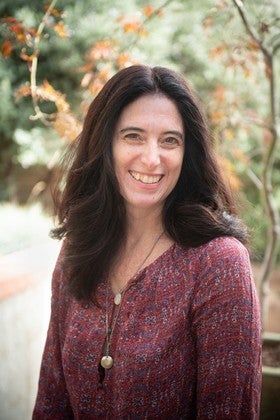
The Power of Forgiveness
A client the other day started talking about her 20-year struggle with rheumatoid arthritis. She discussed the multiple surgeries and lack of range of motion in her hands, her limited activities due to the severe inflammation in her knees, and the chronic daily pain. She followed up the story by saying, “Then I healed from it in 2008”.
This caught my attention: RA is an autoimmune disease. I’ve seen many people who have managed and controlled their symptoms, who know what to do when a flare-up occurs. But I hadn’t heard anyone say they had healed from it. So I got curious and asked her how she cured her arthritis. Her response surprised me even more:
“I forgave my mother. Then I forgave myself.”
These words reminded me of a quote from the Buddha I heard years ago: “Holding onto anger is like drinking poison and expecting the other person to die.”
Anger is a very natural and appropriate emotion for us to experience. It is a wonderful body signal of boundaries being violated, a reaction to injustice and wrong action in the world. Anger is an energy meant to mobilize us. It is meant to give us the power we need to take action and change something, or from a nervous system perspective, to fight or flee.
The problems arise when harmful events and our inability to appropriately process and mobilize end up becoming trapped in our body. Our minds hold tight to the replay of the event and build angry pressure inside, like a kettle about to boil. Or if we learned it was safer to repress anger, we may collapse in grief and helplessness instead. Both of these scenarios create an experience of anger turned inward. Our bodies either experience the effects of this potent energy trapped inside or the anger or hurt leaks out in destructive ways towards others — often times, it’s both. Carrying resentment and anger from past events affects our bodies, our minds, and our relationships.
“Forgive others not because they deserve forgiveness. But because you deserve peace.” ~ Buddha
Before taking steps toward forgiveness, it may be useful to discuss what forgiveness is not. Forgiveness is not condoning the bad actions of someone else. It is not “giving them a pass”. Forgiveness does not equate to having porous boundaries or allowing bad behavior to continue or repeat. In fact, anger is a useful cue to see where you may need to shore up boundaries or make healthy changes. We will get optimal results with forgiveness if our present moment experience with someone is actually safe.
If our boundaries are solid and the anger, hurt, and resentment are not currently causing harm, we can be sure that forgiveness is in order. If we aim to live more fully in the present moment, in a joyful and peaceful way, letting go of past hurts is vital.
Life is full of opportunities to experience (or inflict) harm. We will all have opportunities to forgive or to receive forgiveness. If we are holding anger and hurt, this memory and energy is holding us hostage, not the person who caused the harm. And we have no control over whether the person who harmed us sees their error, apologizes, atones, or remains exactly the same. What we do have control over is accepting that the event happened, and releasing the need for the person who caused harm to be or act any differently than they are actually acting.
Forgiveness is about us letting go of the poison that is continuing to cause us harm. It’s about deciding to cut the strings of pain that are keeping us stuck in a past moment. It’s about reclaiming our own power and the parts of us that may have been fragmented or taken away. We have control over our interactions with people now, what energies we are willing or unwilling to be around, and how much we can surrender and accept the way things actually are. We get to decide if we are ready to lay down the burden of hurt that we have been carrying.
Right now, try to summon the vibration of forgiveness. What is the tone, the texture, the sensation in your body when you embody forgiveness? How does your facial expression change? It likely feels soft, supple, open, and adjacent to love. These feelings occur whether you are on the giving or receiving end of forgiveness. Sometimes pain and resistance, agitation, shame, or guilt may pop up first — but ultimately, loving kindness surrounds and permeates the more abrasive or charged feelings. Cultivating the ability to hold both of these energies simultaneously is extraordinarily powerful. It allows the anger and all the rest of the adjacent emotions to soften and dissolve.
Once you are familiar with the vibration of forgiveness, call up something or someone you hold resentment toward. Bring the person or situation into your mind and notice how you feel as you do so. If you are having difficulty holding the other in your mind’s eye without having some space around the difficult feelings, you can visualize a bubble around the other person or the situation. Pause and give those initial emotions a chance to be and to express. Feel them in your body. Now call up the energy of forgiveness. Let your body feel where that exists and how it presents. When you are ready, say these words:
I forgive you. And I forgive myself.
I allow us both to be free.
Repeat these words for several minutes, staying tethered to a feeling of forgiveness and love, even as other emotions may come up. Allow any thoughts and sensations that come up to move through your body and mind. Then return to the words and feelings of forgiveness. When you feel complete, picture yourself cutting a cord that is holding you to that person or situation, let the image dissolve, and rest in the effects.
Forgiveness isn’t always easy. It requires a willingness to surrender all of the formerly appropriate defensive strategies that we have put in place to protect our sweet gentle selves. It requires the bravery to take complete responsibility for our current present moment experiences. It requires the maturity to know that whatever the other person has done or is currently doing has nothing to do with us. It requires the difficult step of letting go of needing them to do anything in order to decide to let the situation heal. Forgiveness is declaring to ourselves that we deserve peace. We deserve to take our power back. We deserve to be free.
Comments

You need to be a subscriber to post a comment.
Please Log In or Create an Account to start your free trial.








